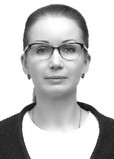Соотношение теоретического и эмпирического уровней исследования феномена физической рекреации
Фотографии:
ˑ:
PhD, Associate Professor Yu.A. Dubrovskaya1
E.N. Korostelev1
M.M. Gromov1
1Saint-Petersburg Mining University, Saint-Petersburg
Objective of the study was to construct a holistic theory of the ratio between the theoretical and empirical levels of knowledge about physical development and to determine the fields of its application.
Methods and structure of the study. During the study we applied such methods as a system analysis and generalization of the ratio between the theoretical and empirical levels of knowledge about physical development.
Results of the study and conclusions. The author notes that nowadays the national sport science has been paying increased attention to the problem of physical development, which is considered one of the available and effective means of improvement of man’s health, organization of his leisure activities. Despite all the positive aspects of this process, it should be emphasized that an increase in the number of scientific disciplines devoted to this problem makes it difficult to create a holistic theory and to determine the fields of its application. There is an inherent problem of integration of the accumulated knowledge about physical development, systematization of rather diverse and numerous data on the phenomenon under study, and creation of its integral concept. In scientific studies, it is customary to distinguish between two main levels of research on a particular phenomenon - theoretical and empirical. The issue of the ratio between the theoretical and empirical levels of knowledge is not new and is found in any scientific discipline. This problem is especially acute in human sciences, i.e. anthropology. At the biological level, man is considered as a morphofunctional system, his body, at the sociological level - as an object of a social system, at the psychological level - as a subject of the system functioning, and at the socio-psychological level - as an object-subject of the system. The article considers the issue of creating a holistic concept of the ratio of different levels.
The socio-cultural approach to the consideration and study of man’s physical development is currently starting to prevail. However, in terms of the theoretical and empirical studies this approach is extremely underdeveloped or is used only partially.
Keywords: physical recreation, methodological principle, personality, social sphere.
References
- Aslakhanov S-A.M., Kovalenko A.I. Sotsialny aspekt adaptatsionno-vosstanovitelnoy modeli fizicheskoy rekreatsii [Physical Adaptation and rehabilitation model: social aspect]. Teoriya i praktika fiz. kultury. 2018. no. 4. pp. 34-36.
- Getman V.D., Kadyrov R.M., Simakov V.S. Organizatsiya fizicheskoy podgotovki kak nauchno-prakticheskaya problema [Organization of physical training as scientific and practical problem]. Razvitie teoreticheskikh osnov fizicheskogo vospitaniya i sporta. [Development of theoretical foundations of physical education and sports]. Proc. interuniversity. res.-practical conf. "Herzen readings". Herzen RSMU, 2018. pp. 38-41.
- Karavan A.V., Kadyrov R.M., Get’man V.D. Model samoupravleniya studentami fizicheskoy trenirovkoy [Student's self-guided physical training model] samoupravleniya studentami fizicheskoy trenirovkoy]. Teoriya i praktika fiz. kultury. 2015. # 9. pp. 3-4.
- Pristav O.V., Dementiev K.N., Mironova O.V. et al. Issledovanie motivatsionnoy sferyi studentov-plavtsov vuzov v kontekste populyarizatsii fizkulturno-sportivnoy deyatelnosti [Study of motivational sphere of academic swimmers in context of popularization of physical education and sports]. Uchenye zapiski universiteta im. P.F. Lesgafta. 2014. no.10 (116). pp. 208-212.
- Pristav O.V., Dementiev K.N., Mironova O.V., Yarchikovskaya L.V. K voprosu razrabotki mekhanizmov povyisheniya effektivnosti zanyatiy fizicheskoy kulturoy so studentami spetsialnykh meditsinskikh grupp [On development of mechanisms to increase effectiveness of physical education classes with special health group students]. Aktualnye problemy fizicheskoy i spetsialnoy podgotovki silovykh struktur. 2015. no. 2.pp. 2-26.
- Rozin V.M. Lichnost kak uchreditel i menedzher «sebya» i sub'ekt kultury [Personality as founder and manager of own self and subject of culture]. Man as a subject of culture. M.: Nauka publ., 2002. p. 48.
- Elmurzaev M.A., Panchenko I.A., Smirnova N.V. Kulturosozidayushchiy potentsial fizicheskoy rekreatsii [Culture-creating resource of physical recreation]. Teoriya i praktika fiz. kultury, 2018, no. 4, pp. 102-104.
- Elmurzaev M.A., Panchenko I.A., Pakholkova N.V. Postroenie modeley fizicheskoy rekreatsii: innovatsionny vektor razvitiya [Physical recreation service model design options: innovative development vector]. Teoriya i praktika fiz. kultury, 2019no. 3. pp. 45-47.
- Elmurzaev M.A.. Panchenko I.A. Proportsii ponyatiy aktivnosti i deyatelnosti v sfere fizicheskoy rekreatsii [Activity and operation in physical recreation]. Teoriya i praktika fiz. kultury, 2017, no. 5, pp. 6-9.



